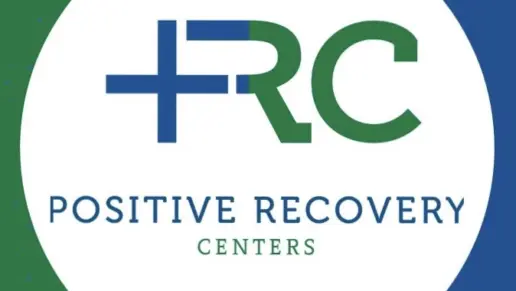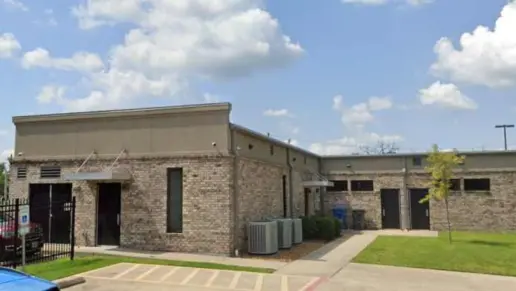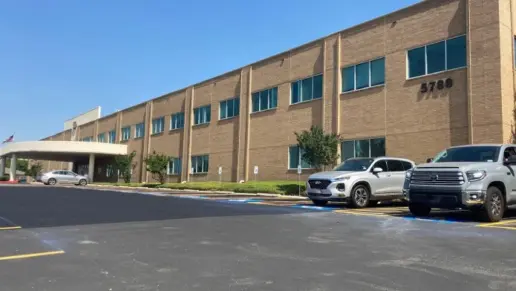About Clear Springs Ranch
Clear Springs Ranch provides multi-disciplinary treatment for alcoholism and substance abuse in a tranquil and therapeutic environment located in the heart of central Texas. Clear Springs Ranch has built a successful track record offering individuals and their families a unique treatment experience.
Clear Springs Ranch clinical treatment model provides professional evaluation and multidisciplinary treatment of primary substance and co-occurring disorders that is research and best practice-based. Their transformative philosophy utilizes 12-Step immersion to address issues at clients’ emotional and spiritual points of need. Clients learn that recovery is more than being substance-free; it’s learning to solve problems, handle stress, build positive relationships, and ask for help when needed.
The Clear Springs Ranch campus is ideally configured providing comfortable residential accommodations and excellent treatment facilities overlaid with breathtaking beauty and tranquility. Once a high-end resort, Clear Springs Ranch offers clients the ability to experience the inspiration and peace that flows from nature.
The staff at Clear Springs Ranch understands the unique challenges women face when approaching the process of recovery. For this reason, they have opened the brand-new Estela Avery House — a beautiful women-only residential facility. This building offers serene views and features an all-female staff of clinicians and recovery advocates. Fifteen residents will receive gender-specific medical detox and nursing care as needed on-site from day one. Mealtimes in the Café are also staggered so that women feel ia profound sense of safety and seclusion.
Latest Reviews
Rehab Score
Other Forms of Payment
Self-pay involves paying for treatment out of your own pocket. You can use savings or credit, get a personal loan, or receive help from family and friends to fund your treatment. If you don't have insurance or your insurance plan doesn't cover a specific program, self-pay can help ensure you still get the care you need.
Private insurance refers to any kind of healthcare coverage that isn't from the state or federal government. This includes individual and family plans offered by an employer or purchased from the Insurance Marketplace. Every plan will have different requirements and out of pocket costs so be sure to get the full details before you start treatment.
Military members, veterans, and eligible dependents have access to specific insurance programs that help them get the care they need. TRICARE and VA insurance can help you access low cost or no cost addiction and mental health treatment. Programs that accept military insurance often have targeted treatment focused on the unique challenges military members, veterans, and their families face.
Addiction Treatments
Levels of Care
Treatments
The goal of treatment for alcoholism is abstinence. Those with poor social support, poor motivation, or psychiatric disorders tend to relapse within a few years of treatment. For these people, success is measured by longer periods of abstinence, reduced use of alcohol, better health, and improved social functioning. Recovery and Maintenance are usually based on 12 step programs and AA meetings.
During rehab in Texas, you'll deal with underlying issues that contribute to addiction. By addressing these challenges and learning healthy ways to cope with them, you'll develop strategies that help you live a drug-free lifestyle.
Many of those suffering from addiction also suffer from mental or emotional illnesses like schizophrenia, bipolar disorder, depression, or anxiety disorders. Rehab and other substance abuse facilities treating those with a dual diagnosis or co-occurring disorder administer psychiatric treatment to address the person's mental health issue in addition to drug and alcohol rehabilitation.
A combined mental health and substance abuse rehab has the staff and resources available to handle individuals with both mental health and substance abuse issues. It can be challenging to determine where a specific symptom stems from (a mental health issue or an issue related to substance abuse), so mental health and substance abuse professionals are helpful in detangling symptoms and keeping treatment on track.
Opioid rehabs specialize in supporting those recovering from opioid addiction. They treat those suffering from addiction to illegal opioids like heroin, as well as prescription drugs like oxycodone. These centers typically combine both physical as well as mental and emotional support to help stop addiction. Physical support often includes medical detox and subsequent medical support (including medication), and mental support includes in-depth therapy to address the underlying causes of addiction.
Programs


Clinical Services
This form of psychotherapy helps clients examine how thoughts and beliefs affect behavior. By addressing negative patterns of thoughts and behavior through the help of a trained therapist, positive beliefs can be constructed. Individuals have experienced improved levels of brain functioning and relief from conditions such as depression, anxiety and eating disorders through CBT techniques.
Creativity is inherently healing, and can help those in recovery express thoughts or feelings they might not otherwise be able to. Creative arts therapy can include music, poetry/writing, painting, sculpting, dance, theater, sandplay, and more. Unlike traditional art, the final product matters far less than the experience of creation and expression itself.
This approach helps their clients increase their emotional and cognitive regulation by learning and accepting the triggers that lead to reactive states, such as substance abuse. Dialectical Behavioral Therapy helps identify coping skills to apply in the sequence of events, thoughts, feelings, and behaviors in order to avoid undesired reactions. The treatment is especially helpful with borderline personality disorders.
Equine therapy, aka equine-assisted therapy (EAT), is a form of experiential therapy that involves interactions and activities with horses. It does not necessarily involve riding horses, but all activities related to horses, such as feeding, grooming, haltering and leading them. A mental health professional frequently oversees the activities (often in conjunction with a horse professional), and helps patients process their thoughts, feelings, and behavior patterns during and/or after the interaction.
Experiential therapy is a form of therapy in which clients are encouraged to surface and work through subconscious issues by engaging in real-time experiences. Experiential therapy departs from traditional talk therapy by involving the body, and having clients engage in activities, movements, and physical and emotional expression. This can involve role-play or using props (which can include other people). Experiential therapy can help people process trauma, memories, and emotion quickly, deeply, and in a lasting fashion, leading to substantial and impactful healing.
This is a psychotherapy utilizing a sequence of eye movements that were developed by Francine Shapiro to address disturbing memories that may be the cause of psychopathology. When a traumatic or distressing experience occurs, it may overwhelm normal coping mechanisms. The memory and associated stimuli are inadequately processed and stored in an isolated memory network. The goal of EMDR is to reduce the long-lasting effects of conditions such as Post-traumatic Stress Syndrome (PTSD) by developing more adaptive coping mechanisms.
They understand the damage addiction brings to families. Congratulations on taking the first step toward long-term recovery. Clear Springs Ranch Family Program ensures that the family is part of the treatment process, from the initial assessment to aftercare planning to understanding the signs of relapse.
Group therapy is any therapeutic work that happens in a group (not one-on-one). Group therapy sessions focus on the relationships a person has with others and can help to improve a client’s interpersonal skills. Interacting with others socially with the facilitation of a trained therapist can assist with the recognition of negative patterns. Individuals then are able to learn strategies for understanding and interacting positively with others.
In individual therapy, a patient meets one-on-one with a trained psychologist or counselor. Talking things over confidentially with a trained therapist in a safe environment helps clients begin to understand challenging feelings and behaviors. During individual counseling sessions, Clear Springs Ranch clients learn new coping skills by exploring the connections of past experiences and relationships to current problems.
Life skills trainings involve all the skills a person must have in order to function successfully in the world. These include time management, career guidance, money management, and effective communication. Truly successful addiction recovery is based on the ability to not only live substance-free, but to thrive. Life skills teaches the practical necessities of functioning in society, which sets clients up for success in life, and therefore sobriety.
Motivational Interviewing (MI) is a clinical approach to helping people with substance abuse issues and other conditions shift behavior in positive ways. It is more goal-oriented than traditional psychotherapy, as MI counselors directly attempt to get clients to consider making behavioral change (rather than wait for them to come to conclusions themselves). Its primary purpose is to resolve ambivalence and help clients become able to make healthy choices freely.
Nicotine Replacement Therapy (NRT) is a way of getting nicotine into the bloodstream without smoking. It uses products that supply low doses of nicotine to help people stop smoking. The goal of therapy is to cut down on cravings for nicotine and ease the symptoms of nicotine withdrawal.
Nutrition therapy, aka medical nutrition therapy (MNT), is a way of treating physical, emotional, and medical conditions through diet. Specific dietary plans are designed by professional nutritionists or registered dietitians, and patients follow them in order to positively affect their physical and mental health.
Rational Behavior Therapy (RBT) is a form of cognitive behavioral therapy meant to be short-term and comprehensive. It was intended to help clients become more self-sufficent and move forward without the need for expensive, ongoing therapy. It includes an emotional self-help method called “rational self-counseling,” the purpose of which is to give clients all the skills needed to handle future emotional issues by themselves, or with significantly less professional help.
Trauma therapy addresses traumatic incidents from a client's past that are likely affecting their present-day experience. Trauma is often one of the primary triggers and potential causes of addiction, and can stem from child sexual abuse, domestic violence, having a parent with a mental illness, losing one or both parents at a young age, teenage or adult sexual assault, or any number of other factors. The purpose of trauma therapy is to allow a patient to process trauma and move through and past it, with the help of trained and compassionate mental health professionals.
Amenities
-
Private Setting
-
Lakeside
-
Yoga Studio
-
Private Rooms
-
Hiking
Accreditations

The Joint Commission, formerly known as JCAHO, is a nonprofit organization that accredits rehab organizations and programs. Founded in 1951, the Joint Commision's mission is to improve the quality of patient care and demonstrating the quality of patient care.
Joint Commission Accreditation: Yes
Accreditation Number: 593996

The Substance Abuse and Mental Health Services Administration (SAMHSA) is a branch of the U.S. Department of Health and Human Services. Established in 1992 by congress, SAMHSA's mission is to reduce the impact of substance abuse and mental illness on American's communities.
SAMHSA Listed: Yes

State Licenses are permits issued by government agencies that allow rehab organizations to conduct business legally within a certain geographical area. Typically, the kind of program a rehab facility offers, along with its physical location, determines which licenses are required to operate legally.
State License: Texas
License Number: 3552
Contact Information
3662 Patton Lake Road
Aquilla, TX 76622


